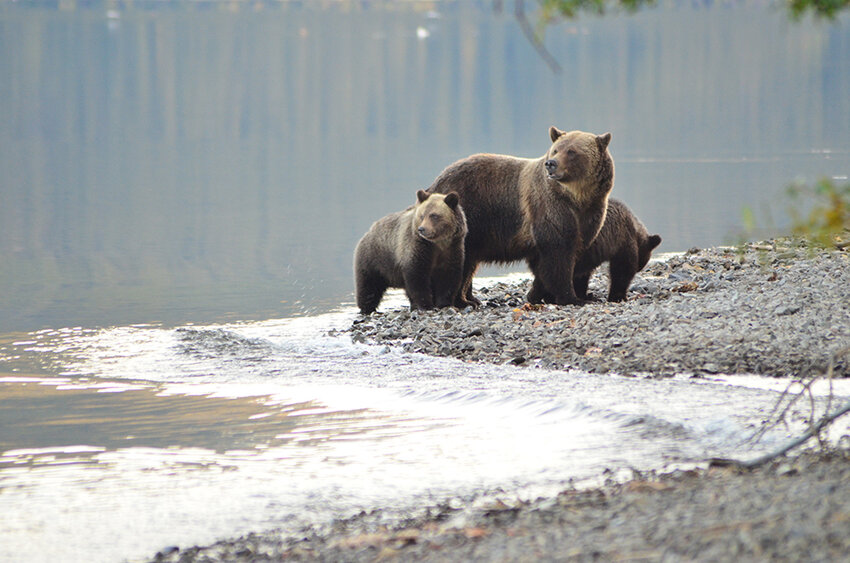 Jeremy Williams photo, from file
Jeremy Williams photo, from fileGrizzly bear population efforts have gained momentum.
A new environmental impact statement (EIS) process, announced by the National Park Service and U.S. Fish and Wildlife Service in a November 10 press release, will evaluate options for restoring and managing grizzlies in the North Cascades.
Grizzly bears have roamed across the North Cascades for thousands of years as an essential part of the ecosystem, distributing native plant seeds and keeping other wildlife populations in balance, the press release said. Humans nearly hunted them to extinction during the 20th century. The last confirmed sighting of a grizzly bear in the U.S. portion of the North Cascades was in 1996.
“This is a first step toward bringing balance back to the ecosystem and restoring a piece of the Pacific Northwest’s natural and cultural heritage,” said Don Striker, superintendent of North Cascades National Park. “With the public’s help we will evaluate a list of options to determine the best path forward.”
This isn’t the first EIS process. One was started in 2014, and a draft received over 150,000 comments in 2017 with the majority in favor of an incremental reintroduction. But U.S. secretary of interior David Bernhardt terminated the process in 2020, under the Trump administration.
Since, advocates like Conservation Northwest have found new hope under the Biden administration, which the announcement attests.
“The grizzly bear is a critical part of the ecological and cultural fabric of the North Cascades,” said Joe Scott, international program director for Conservation Northwest, in a Conservation Northwest news release. “They belong here. Without them, our wild areas are diminished, less diverse and sanitized. The narrative about Cascades grizzly bear recovery will take decades to unfold. But with science, education and a little human tolerance, it can be one of the greatest conservation success stories of ours and future generations.”
The North Cascades ecosystem is one of only two grizzly recovery areas without an established population of bears, the news release said. Natural bear migration would unlikely repopulate the region.
Four virtual public meetings will be held to take public comment. The last two are Thursday, December 1 at noon and Friday, December 2 at 7 p.m. More information can be found at parkplanning.nps.gov/NCEGrizzly.